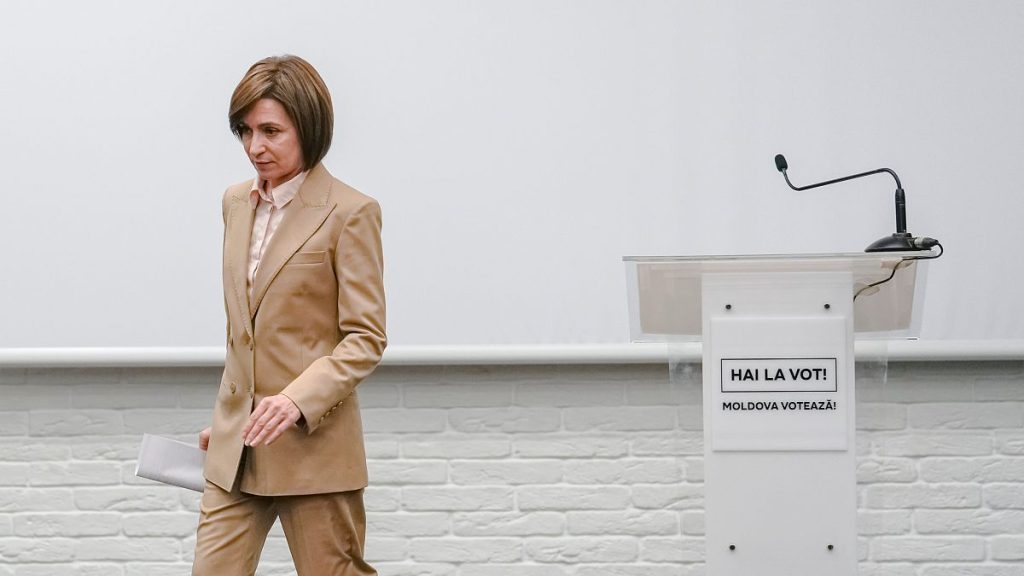Maia Sandu embarked on her second term as President of the Republic of Moldova, a nation grappling with complex geopolitical realities and aspiring for closer ties with the European Union. Her inauguration ceremony, held in the capital city of Chișinău, marked a pivotal moment in Moldova’s ongoing journey towards stability and integration with the West. Sandu’s address resonated with themes of gratitude, determination, and a recognition of the challenges that lie ahead. Her victory, secured against a pro-Russian opponent, underscores the delicate balance Moldova maintains between its historical ties with Russia and its aspirations for a European future. The shadow of the ongoing conflict in neighboring Ukraine looms large, adding urgency to Sandu’s calls for Western support and highlighting the precarious security situation in the region.
Sandu’s first term was marked by a series of crises, both internal and external, which tested the resilience of the Moldovan people. The COVID-19 pandemic, economic instability, and the escalating conflict in Ukraine all presented significant hurdles. However, Sandu emphasized the courage and determination of Moldovans to navigate these turbulent times and choose a path aligned with democratic values and European integration. Her administration has actively pursued closer ties with the EU, culminating in Moldova’s candidacy for membership. This strategic move signifies a clear departure from its Soviet past and a commitment to embracing Western norms and institutions.
The presence of the breakaway region of Transnistria, a self-declared republic backed by Russia, adds another layer of complexity to Moldova’s security concerns. This region, located on Moldova’s eastern border with Ukraine, hosts a significant contingent of Russian troops and a large weapons depot, raising fears of potential spillover from the conflict in Ukraine. The Council of Europe’s declaration of Transnistria as a territory under Russian occupation further underscores the geopolitical tensions in the region. Sandu’s administration has consistently voiced concerns about Russia’s influence in Transnistria and the potential threat it poses to Moldova’s sovereignty and territorial integrity.
The presidential election itself was not without controversy. Allegations of Russian interference, voter fraud, and intimidation clouded the electoral process, highlighting the ongoing struggle for influence between Russia and the West in Moldova. Despite these challenges, Sandu emerged victorious, securing a second term with a clear mandate. Her victory reflects the popular support for her pro-Western policies and her commitment to leading Moldova towards a more secure and prosperous future. The relatively high voter turnout also signifies the importance of this election for the Moldovan people and their desire for a stable and democratic government.
As Sandu begins her second term, she faces the daunting task of navigating a complex geopolitical landscape while addressing the internal challenges facing Moldova. Her priorities will likely include strengthening Moldova’s relationship with the EU, advancing economic reforms, and addressing the security concerns posed by the situation in Transnistria. She will also need to work towards fostering national unity and addressing the social and economic disparities that exist within the country. The success of her second term will depend on her ability to effectively manage these competing demands and maintain the support of the Moldovan people.
Sandu’s leadership will be crucial in shaping Moldova’s future trajectory. Her commitment to democratic values, European integration, and addressing the security concerns posed by Russia’s presence in the region will be critical in determining the country’s path forward. The next four years will be a defining period for Moldova, and Sandu’s ability to navigate the challenges and opportunities that lie ahead will have a profound impact on the country’s future. Her focus on strengthening ties with the West while simultaneously managing the complex relationship with Russia will be instrumental in ensuring Moldova’s stability and progress in the years to come.














